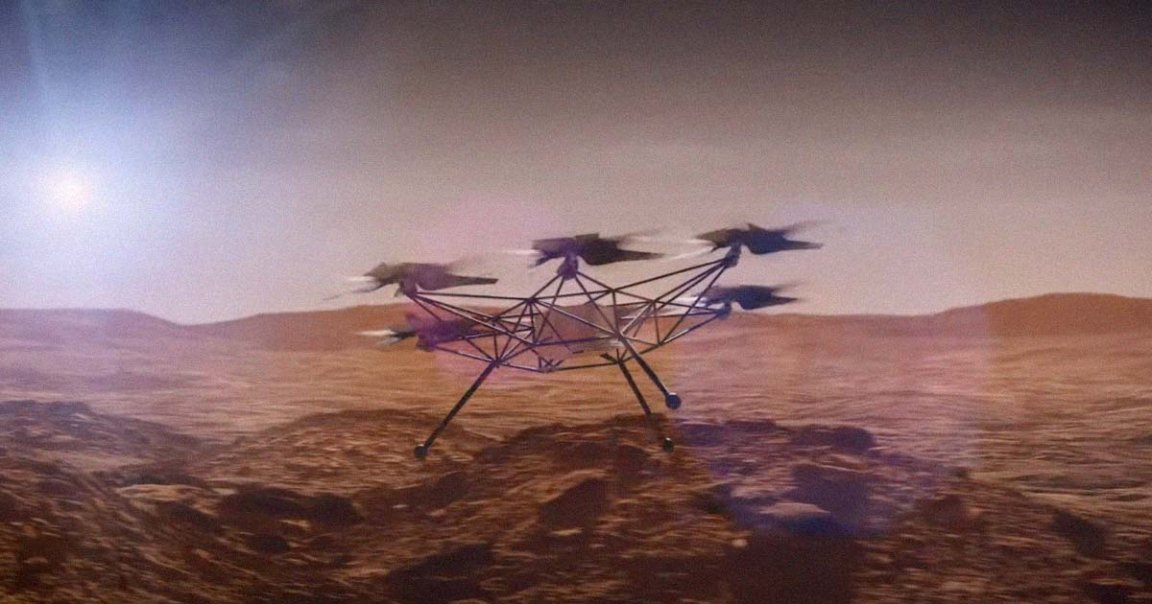
Mars Chopper
NASA has shown off early renderings of an enormous Mars Chopper concept, a proposed follow-up to the space agency’s groundbreaking Ingenuity Mars Helicopter.
The six-rotor monstrosity could turn out to be “the size of an SUV,” according to NASA, allowing it to carry science payloads up to 11 pounds across distances of up to 1.9 miles per Mars day.
A sleek animation shared by NASA’s Jet Propulsion Lab last week shows the massive three-legged drone gliding over a rugged, mountainous landscape.
In other words, the Chopper could pick up right where Ingenuity left off. Its much smaller ancestor sent its final transmission back to Earth in April, bookending an astounding proof-of-concept mission.
The four-pound rotorcraft, which became the first-ever human-made object to take flight on a different planet in 2021, completed 72 flights in just under three years, which was an astonishing achievement, given that it was designed to fly only five times over 30 Mars days.
Whether NASA’s Chopper will get even close to that kind of success remains unclear, but now that Ingenuity has blazed its path, it’s still entirely possible.

Dune Fine
According to NASA, the concept “remains in early conceptual and design stages.” Its main task would be to assist scientists in studying even larger swathes of the Martian terrain, at relatively high speeds.
In particular, the Chopper could go where rovers can’t, allowing scientists to get an unprecedented glimpse of inaccessible areas of the Red Planet.
Meanwhile, NASA scientists are still trying to get to the bottom of why its Ingenuity helicopter crashed on January 18 of this year, in its 72nd and final flight.
Ahead of the release of a full technical report, the agency suggested that the small craft’s navigation system was confused by a sandy, featureless terrain, causing it to miscalculate its velocity and make a “hard impact on the sand ripple’s slope.”
“When running an accident investigation from 100 million miles away, you don’t have any black boxes or eyewitnesses,” said Ingenuity’s first pilot, Håvard Grip of JPL, in a statement. “While multiple scenarios are viable with the available data, we have one we believe is most likely: Lack of surface texture gave the navigation system too little information to work with.”
It’s still unclear whether NASA will end up sending its much larger and even more ambitious Mars Chopper to the Red Planet. But if it ever does make the long journey, it’ll have some big shoes to fill.
More on Ingenuity: Dying Mars Helicopter Sends NASA Final Transmission